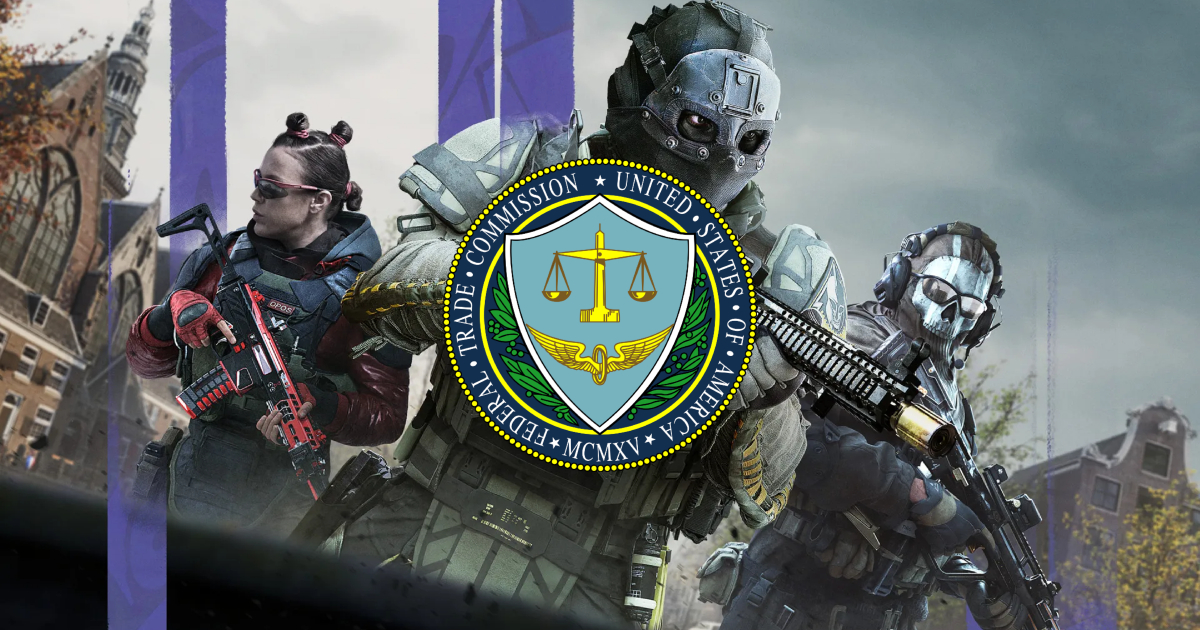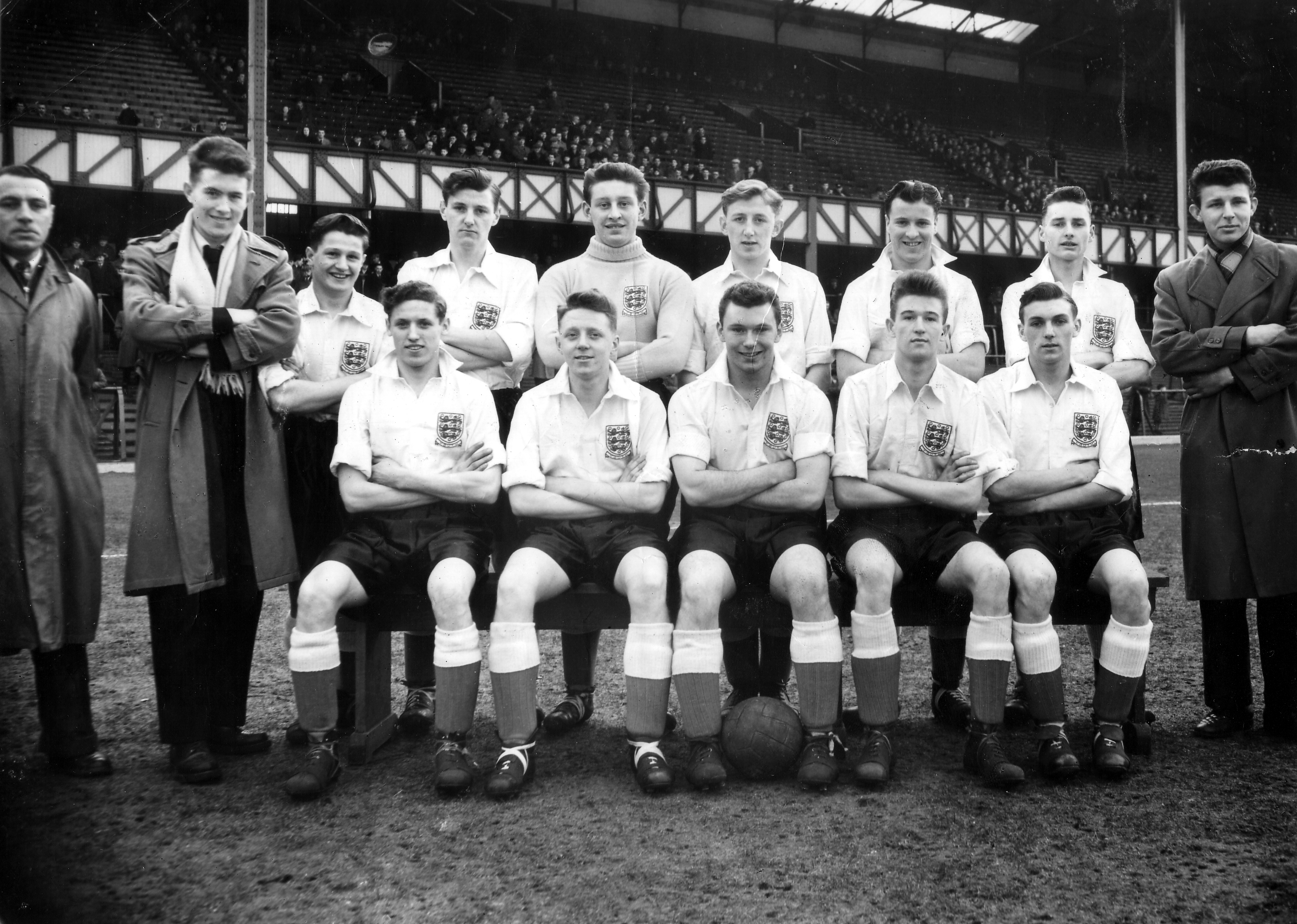Microsoft-Activision Deal: FTC Files Appeal Against Court Ruling

Table of Contents
The Original Court Ruling and its Implications
The initial ruling in the Microsoft-Activision case, delivered by Judge Jacqueline Scott Corley in the U.S. District Court for the Northern District of California, sided with Microsoft. Judge Corley dismissed the FTC's attempt to block the $69 billion acquisition, finding that the FTC had failed to demonstrate that the merger would substantially lessen competition in the video game market. Both sides presented compelling, yet contrasting arguments.
-
Key arguments presented by Microsoft in their defense: Microsoft argued that the merger would expand access to games, benefitting consumers through broader availability on platforms like Xbox Game Pass and cloud gaming services. They also emphasized the continued cross-platform availability of key titles, particularly Call of Duty. They stressed that the gaming market is highly competitive and dynamic, with multiple significant players.
-
Key arguments presented by the FTC to block the merger: The FTC argued that the merger would give Microsoft undue market power, particularly in the console gaming market. Their central concern focused on the potential for Microsoft to make Activision Blizzard's titles, especially Call of Duty, exclusive to Xbox, thereby harming competitors like Sony PlayStation.
-
Specific concerns raised by the FTC regarding competition and market dominance: The FTC highlighted Microsoft’s existing dominance in the cloud gaming market and expressed concern that the acquisition of Activision Blizzard would further solidify this position, potentially stifling innovation and competition. They also pointed to the potential for higher prices and reduced choice for consumers.
-
The immediate impact of the initial ruling on the gaming industry: The initial ruling sent shockwaves through the gaming industry. While Microsoft celebrated, competitors expressed concerns about the precedent set and its potential impact on future mergers and acquisitions. Uncertainty lingered regarding the long-term effects on game availability and pricing.
The FTC's Appeal: Grounds and Arguments
The FTC's appeal hinges on their belief that Judge Corley's interpretation of the relevant antitrust laws was flawed and that the evidence presented clearly demonstrates the anti-competitive nature of the Microsoft-Activision merger. The appeal is likely to focus on a more comprehensive review of the market conditions and the potential for Microsoft to leverage its power post-acquisition.
-
Specific legal points of contention cited by the FTC: The FTC's appeal likely challenges Judge Corley’s assessment of the market definition and the relevant metrics used to measure competitive impact. They may also argue that the court insufficiently weighed the potential for future anti-competitive practices by Microsoft.
-
Evidence presented by the FTC to support their appeal: The FTC is expected to present further evidence, perhaps including internal Microsoft documents or expert testimony, to strengthen their case. This might include data on market share, consumer behavior, and potential future actions by Microsoft.
-
Analysis of the FTC's chances of success on appeal: The FTC faces an uphill battle. Appeals courts generally give deference to lower court rulings, particularly on factual findings. However, if the FTC can successfully demonstrate a clear legal error in the initial ruling, they have a chance of success.
-
Potential legal precedents that might be considered: The appeal will likely draw on precedents from past antitrust cases involving mergers in the tech and media industries, offering various interpretations of antitrust laws related to market dominance and potential anti-competitive behavior.
Impact on Call of Duty and other Activision Titles
The FTC's central concern revolves around the future of Call of Duty and other popular Activision Blizzard titles. They fear that Microsoft could make these titles exclusive to Xbox, thereby harming competitors like Sony and potentially driving up prices for gamers.
-
The FTC's arguments about potential exclusivity and its impact on competitors: The FTC argues that making Call of Duty exclusive would significantly damage PlayStation's competitive position, as the game has a vast and dedicated player base. They argue that this would give Microsoft an unfair advantage.
-
Microsoft's counter-arguments regarding cross-platform availability: Microsoft has consistently stated its commitment to keeping Call of Duty available across platforms, including PlayStation. They have offered long-term contracts to ensure continued access.
-
The potential long-term implications for gamers: The outcome will significantly influence gaming accessibility, potentially affecting game prices and the availability of titles across various platforms. If Call of Duty becomes Xbox exclusive, millions of PlayStation gamers could lose access.
Wider Implications for the Gaming Industry and Antitrust Regulation
The Microsoft-Activision appeal has broader implications that extend beyond the two companies. This legal battle sets a significant precedent for future mergers and acquisitions in the gaming industry and the tech sector more broadly.
-
Potential impact on future mergers in the tech industry: The outcome will influence how regulators approach future mergers involving large tech companies. It will set a benchmark for assessing the competitive impact of such acquisitions.
-
The role of antitrust regulations in regulating large tech companies: This case highlights the ongoing debate about the effectiveness of current antitrust regulations in the face of increasingly powerful tech giants. It questions whether existing laws are adequately equipped to address the unique challenges posed by the digital economy.
-
The influence of this case on future regulatory decisions: The decision will significantly influence future regulatory decisions related to mergers and acquisitions in the gaming and tech industries. It will serve as a key precedent for future cases.
-
The overall impact on the gaming landscape: The outcome of this appeal will shape the competitive landscape of the gaming industry for years to come, impacting everything from game availability to pricing and innovation.
Conclusion
The FTC's appeal against the Microsoft-Activision deal significantly complicates the situation and introduces uncertainty. While the initial court ruling allowed the merger to proceed, the appeal underscores the ongoing debate about the potential anti-competitive effects of this massive acquisition. The outcome of this appeal will not only influence the future of Microsoft and Activision but also set a crucial precedent for future mergers and acquisitions in the gaming and tech industries. The ongoing battle over the Microsoft-Activision Deal highlights the complex interplay between technological advancement, economic power, and regulatory oversight. Stay tuned for further updates as this critical legal battle unfolds, impacting the landscape of gaming as we know it. Keep checking back for further news on the Microsoft-Activision merger and its implications.

Featured Posts
-
 Elizabeth City Police Investigate Recent Vehicle Break Ins
May 10, 2025
Elizabeth City Police Investigate Recent Vehicle Break Ins
May 10, 2025 -
 Exploring The He Morgan Brother 5 Theories To Identify David In High Potential
May 10, 2025
Exploring The He Morgan Brother 5 Theories To Identify David In High Potential
May 10, 2025 -
 Potential Changes To Migrant Detention Under Trump Administration
May 10, 2025
Potential Changes To Migrant Detention Under Trump Administration
May 10, 2025 -
 Unprovoked Racist Attack Woman Kills Man In Stabbing
May 10, 2025
Unprovoked Racist Attack Woman Kills Man In Stabbing
May 10, 2025 -
 Overlooked By Wolves The Story Of A European Football Star
May 10, 2025
Overlooked By Wolves The Story Of A European Football Star
May 10, 2025
